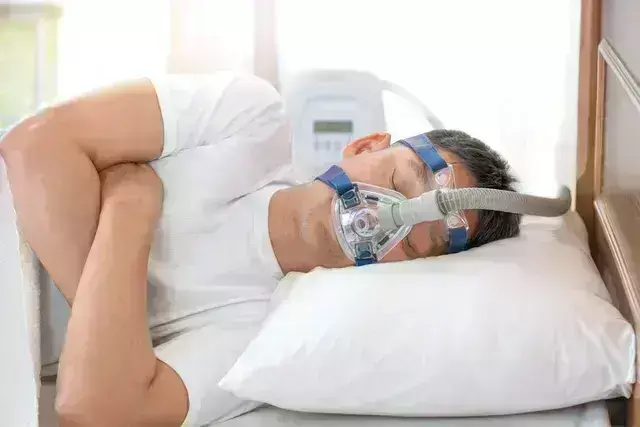- Home
- Medical news & Guidelines
- Anesthesiology
- Cardiology and CTVS
- Critical Care
- Dentistry
- Dermatology
- Diabetes and Endocrinology
- ENT
- Gastroenterology
- Medicine
- Nephrology
- Neurology
- Obstretics-Gynaecology
- Oncology
- Ophthalmology
- Orthopaedics
- Pediatrics-Neonatology
- Psychiatry
- Pulmonology
- Radiology
- Surgery
- Urology
- Laboratory Medicine
- Diet
- Nursing
- Paramedical
- Physiotherapy
- Health news
- Fact Check
- Bone Health Fact Check
- Brain Health Fact Check
- Cancer Related Fact Check
- Child Care Fact Check
- Dental and oral health fact check
- Diabetes and metabolic health fact check
- Diet and Nutrition Fact Check
- Eye and ENT Care Fact Check
- Fitness fact check
- Gut health fact check
- Heart health fact check
- Kidney health fact check
- Medical education fact check
- Men's health fact check
- Respiratory fact check
- Skin and hair care fact check
- Vaccine and Immunization fact check
- Women's health fact check
- AYUSH
- State News
- Andaman and Nicobar Islands
- Andhra Pradesh
- Arunachal Pradesh
- Assam
- Bihar
- Chandigarh
- Chattisgarh
- Dadra and Nagar Haveli
- Daman and Diu
- Delhi
- Goa
- Gujarat
- Haryana
- Himachal Pradesh
- Jammu & Kashmir
- Jharkhand
- Karnataka
- Kerala
- Ladakh
- Lakshadweep
- Madhya Pradesh
- Maharashtra
- Manipur
- Meghalaya
- Mizoram
- Nagaland
- Odisha
- Puducherry
- Punjab
- Rajasthan
- Sikkim
- Tamil Nadu
- Telangana
- Tripura
- Uttar Pradesh
- Uttrakhand
- West Bengal
- Medical Education
- Industry
CPAP and MAD better than OMT for TMJ health preservation among Sleep apnea Patients: Study

CPAP and MAD better than OMT for TMJ health preservation among Sleep apnea Patients suggests a study published in the BMC Oral Health.
In recent years, obstructive sleep apnea (OSA) has been increasingly recognized as a significant health concern. No previous studies assessed the effect of recommended treatment modalities of patients with OSA on the temporomandibular joint (TMJ).
The current study aimed to evaluate the effect of different treatment modalities of OSA, such as continuous positive airway pressure (CPAP), mandibular advancement device (MAD), and oral myofunctional therapy (OMT) on subjective symptoms, clinical, and radiographic signs of temporomandibular disorders. The institutional review board approved this hospital-based prospective randomized controlled clinical trial study and formal patient consent, 39 OSA patients, ranging in age from 19 to 56 after confirmation with full night Polysomnography (PSG) with healthy TMJ confirmed clinically and radiographically with magnetic resonance imaging (MRI) were randomly allocated into three treatment groups. Group 1: 13 patients were managed with CPAP after titration, group 2: 13 patients were managed with digitally fabricated MAD, and group 3: 13 patients were managed with OMT.
The following parameters were evaluated before and 3 months after the intervention. Pain using a visual analogue scale (VAS), maximum inter-incisal opening (MIO), lateral movements, and clicking sound of TMJ. MRI was done before and 3 months after the intervention. Results: Out of the 83 patients enrolled, 39 patients completed the treatment. There were no statistically significant differences in lateral jaw movements or clicking, and no significant difference in MRI findings between the three studied groups before and after the intervention.
The OMT group showed a statistically significant difference in pain (p = 0.001), and MIO (p = 0.043) where patients experienced mild pain and slight limitation in mouth opening after 3 months of follow-up in comparison to MAD and CPAP groups. CPAP and MAD are better for preserving the health of TMJ in the treatment of OSA patients. While OMT showed mild pain and slight limitation of MIO (that is still within the normal range of mouth opening) compared to CPAP and MAD.
Reference:
Attia, A.A., Awad, S.S., Mansour, M. et al. Effects of different treatments for obstructive sleep apnea on temporomandibular joint: a randomized clinical trial. BMC Oral Health 24, 931 (2024). https://doi.org/10.1186/s12903-024-04623-w
Dr. Shravani Dali has completed her BDS from Pravara institute of medical sciences, loni. Following which she extensively worked in the healthcare sector for 2+ years. She has been actively involved in writing blogs in field of health and wellness. Currently she is pursuing her Masters of public health-health administration from Tata institute of social sciences. She can be contacted at editorial@medicaldialogues.in.
Dr Kamal Kant Kohli-MBBS, DTCD- a chest specialist with more than 30 years of practice and a flair for writing clinical articles, Dr Kamal Kant Kohli joined Medical Dialogues as a Chief Editor of Medical News. Besides writing articles, as an editor, he proofreads and verifies all the medical content published on Medical Dialogues including those coming from journals, studies,medical conferences,guidelines etc. Email: drkohli@medicaldialogues.in. Contact no. 011-43720751


